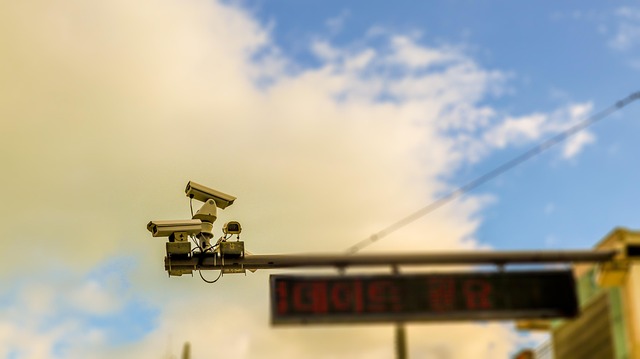Political events require stringent security measures due to high-profile political figures. Effective venue management involves robust access control, background checks, and discreet surveillance. Transportation security, secure communications, and emergency response planning are crucial. Personal security for politicians is a game-changer, with specialized professionals implementing tailored strategies like crowd control and crisis management. Venue selection requires risk assessment, focusing on physical layout, access points, and surrounding environment. Biometric access control and surveillance systems enhance safety. Robust access control measures prevent impersonation and identify risks early. Post-event reviews and simulations optimize security for future events.
Securing political events requires specialized lodging and venue management strategies due to their unique security needs. This comprehensive guide explores the multifaceted aspects of ensuring safe environments for political figures, from understanding specific risks to implementing robust access control measures. We delve into the crucial role of personal security for politicians, venue selection criteria, post-event reviews, and continuous improvement strategies. By adhering to these practices, event organizers can mitigate potential threats and foster a secure atmosphere.
Understanding the Unique Security Needs of Political Events
Political events, whether they are local town hall meetings or national conventions, come with unique and stringent security requirements. Unlike regular social gatherings, these events often attract high-profile political figures, including politicians and government officials, who require enhanced personal security measures. The primary concern is to safeguard these individuals from potential threats, such as assassination attempts, stalking, or physical harm.
Venue management plays a pivotal role in ensuring the safety of all attendees, especially politicians. This includes implementing robust access control systems, conducting thorough background checks on staff and visitors, and setting up discreet yet effective surveillance. A well-coordinated security strategy should also account for transportation security, secure communication channels, and emergency response planning to mitigate any unforeseen incidents effectively.
The Role of Personal Security for Politicians: A Crucial Aspect
The personal security of politicians is an indispensable component in the management of political events, ensuring their safety and well-being during public appearances, campaigns, and meetings. In a world where political figures often face threats and potential risks, comprehensive security measures are essential to mitigate these dangers. This includes a dedicated team of trained professionals who specialize in personal protection, employing strategies tailored to each politician’s unique needs and vulnerabilities.
These security experts play a pivotal role in risk assessment, developing protective protocols, and implementing discreet yet robust safety nets. Their responsibilities encompass crowd control, surveillance, threat detection, and crisis management. By safeguarding politicians from physical harm, harassment, or even assassination attempts, personal security becomes the cornerstone of successful event management, allowing political figures to focus on their agendas and connect with constituents without undue worry.
Venue Selection and Assessment for Enhanced Safety
When managing venues for political events, prioritizing safety is paramount, especially regarding personal security for politicians. Venue selection should involve a thorough assessment to identify potential risks and vulnerabilities. This process entails evaluating the physical layout, access points, and surrounding environment. Look for secure entry and exit strategies, clear lines of sight, and robust surveillance capabilities. A comprehensive risk assessment will help mitigate threats, ensuring the safety of all attendees, particularly political figures who are high-value targets.
Consider factors like crowd control measures, emergency response plans, and the venue’s ability to accommodate advanced security technology. Modern solutions like biometric access control and advanced surveillance systems can significantly enhance security. These tools aid in identifying and managing unauthorized personnel, preventing potential threats, and ensuring a swift response during emergencies. Venue managers must collaborate closely with local law enforcement and private security agencies to implement these measures effectively, creating a robust safety framework for political events.
Implementing Effective Access Control Measures
Implementing robust access control measures is paramount in ensuring the safety and security of political events, especially when hosting high-profile figures. This involves a multi-layered approach to safeguard against unauthorized access and potential threats. One of the primary strategies is the utilization of secure identification systems, such as biometric scanning or specialized access cards, to verify the identities of attendees and staff. These measures prevent impersonation and ensure that only authorized personnel gain entry, enhancing personal security for politicians and other dignitaries.
Additionally, a comprehensive visitor management system should be in place. This includes meticulous background checks on all event participants, whether they are guests, speakers, or support staff. By implementing these controls, organizers can identify potential risks early on, allowing them to take proactive measures to mitigate any threats. Effective access control not only ensures the physical security of the venue but also creates a secure environment where political discussions and activities can flourish without interference or disruption.
Post-Event Review and Continuous Improvement Strategies
After every political event, a thorough post-event review is essential for lodging and venue management teams. This process involves evaluating all aspects of security, from access control to emergency protocols, to ensure the highest level of personal security for politicians. By identifying areas for improvement, organizers can enhance their preparedness for future events, creating more secure environments for high-profile figures.
Continuous improvement strategies should focus on leveraging technology for better surveillance and monitoring, updating security personnel training, and refining crisis management plans. Regular simulations and practice runs can help in testing and optimizing these strategies, ensuring that the next event is even more securely managed.
Political events require a comprehensive approach to security, from understanding unique event needs to implementing robust access control. By prioritizing personal security for politicians and thoroughly assessing venue safety, organizers can create a secure environment. Effective access control measures, coupled with post-event reviews, ensure continuous improvement in managing political gatherings. These strategies are vital for ensuring the well-being of all involved and fostering a safe space for democratic processes.
